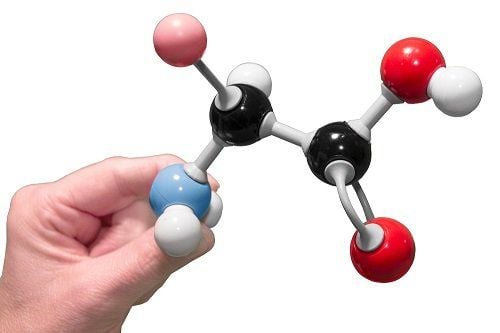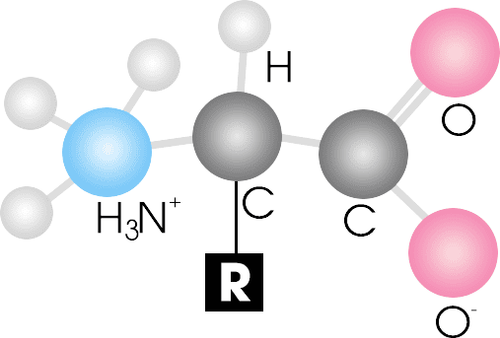This is an automatically translated article.
Amino acids are compounds that play an important role in the process of building and synthesizing proteins, hormones and neurotransmitters. Amino acids are abundant in lean meat, eggs, beans, ... so you can supplement through your daily diet.
1. What are essential amino acids?
Amino acids include organic compounds such as: Oxygen, nitrogen, carbon, hydrogen, an ever-changing chain group. Amino acids are classified into essential, conditionally necessary, and non-essential amino acids depending on a number of factors.
An adult's body needs 20 different amino acids to grow and function properly. Although all 20 of these acids are important for health, only 9 are classified as essential, including:
Histidine; Phenylalanine; Leucine; Lysine; Methioninethreonine; Tryptophan isoleucine; Valine. Essential amino acids cannot be made by the body, they need to be obtained through food. Food sources containing essential amino acids to supplement the body are animal protein, eggs and poultry.
Protein-rich foods break down into amino acids, which are then used to help your body perform various processes, build strong muscles, and regulate immune function.
Some non-essential amino acids are called conditionally essential when your health is not guaranteed. For example: Arginine is considered a non-essential amino acid, but your body cannot meet its needs to fight disease, then it needs to supplement Arginine through the daily diet.
2. The role of essential amino acids
9 essential amino acids have different important tasks and functions in the body as follows:
Phenylalanin: Phenylalanin is responsible for helping form the structure and function of proteins, enzymes and the production of other amino acids. Valine: As one of the three amino acids that branch on one side of the molecular structure, valine helps stimulate growth, muscle regeneration, and participates in the production of energy for the body. Threonine: The amino acid threonine is a major part of protein structures, and is important for skin, connective tissue, fat metabolism, and immune function. Tryptophan: An amino acid that helps maintain proper nitrogen balance, regulate appetite and improve mood. Methionine: Methionine plays an important role in metabolism, detoxification, promoting tissue growth, and absorption of zinc and selenium. Leucine: Leucine is a very important branched chain amino acid that is important for protein synthesis and muscle repair, helps regulate blood sugar levels, stimulates wound healing, and produces growth hormone. Isoleucine: The amino acid isoleucine is involved in muscle metabolism, hemoglobin production, energy regulation and immune system enhancement. Lysine: Lysine plays a key role in protein synthesis, hormone and enzyme production, and calcium absorption. In addition, Lysine also helps with energy production, the immune system, collagen and elastin. Histidine: Histidine is used to make a neurotransmitter important in immune response, digestion, sexual function, and sleep cycles. In particular, Histidine also plays an important role in maintaining the myelin sheath, protecting nerve cells.

Axit amin thiết yếu có các nhiệm vụ, chức năng quan trọng khác nhau trong cơ thể.
3. Benefits of supplementing with essential amino acids for the body
When you supplement with essential amino acids, it will bring the following health benefits:
Helps improve mood and sleep: The amino acid Tryptophan supports the body's production of serotonin, which helps regulate mood , sleep and behavior. Low levels of serotonin in the body can affect mood, sleep disorders, and depression. Increase exercise performance: 3 branched chain essential amino acids work to reduce fatigue, improve athletic performance, stimulate fast muscle recovery after exercise. Prevent muscle loss: Muscle loss is a common side effect of people with long-term medical conditions and bed rest, especially in the elderly. Essential amino acids play a role in preventing muscle breakdown and maintaining body mass. Promotes Weight Loss: Several human and animal studies have shown that branched-chain essential amino acids help stimulate fat loss. However, opinions are mixed, so further research is needed to determine if these amino acids really help promote weight loss.
4. Food sources of amino acids and consumption dosage
Since your body does not produce essential amino acids on its own, they must be provided through the diet daily. There are many foods that contain essential amino acids to help you easily meet your body's needs.
However, the American Medical Association recommends, based on the weight of each person, the supplement of 9 essential amino acids with the following dosage:
Histidine: 14 mg/kg; Isoleucine: 19 mg/kg; Leucine: 42 mg/kg; Lysine: 38 mg/kg; Methionine (in combination with the non-essential amino acid cysteine): 19 mg/kg; Phenylalanin (in combination with the non-essential amino acid tyrosine): 33 mg/kg; Threonine: 20 mg/kg; Tryptophan: 5 mg/kg; Valine: 24 mg/kg. Foods that contain all 9 essential amino acids are called complete proteins. Complete protein sources include: Red meat, seafood, poultry, eggs, dairy products, and beans. But if you are following a vegetarian diet, you can still get all the essential amino acids through plant protein every day.
In summary, essential amino acids are very important for the body. Amino acids are abundant in lean meat, eggs, beans, ... so you can supplement through your daily diet.
Please dial HOTLINE for more information or register for an appointment HERE. Download MyVinmec app to make appointments faster and to manage your bookings easily.
Reference source: healthline.com












